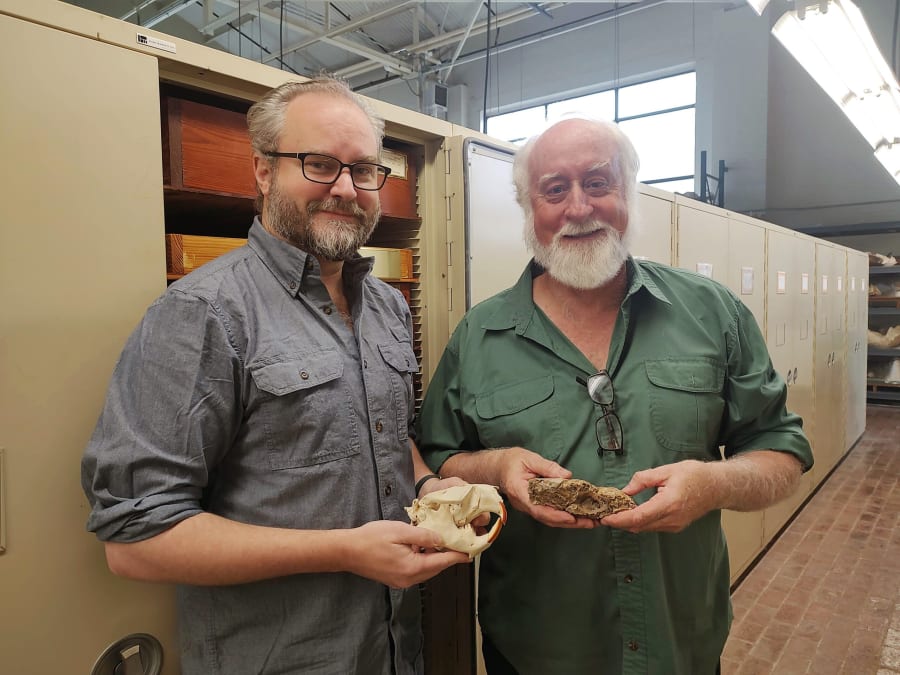AUSTIN – The Buc-ee’s beaver may rule Texas interstates, but the state has been “beaver country” for millions of years, researchers at the University of Texas-Austin recently proved.
Matthew Brown and Steve May with the UT Jackson School of Geosciences rediscovered a species of an ancient beaver that lived in Texas about 15 million years ago, the school announced Monday.
Recommended Videos
Inspired by Buc-ee’s pitstop empire, they named the beaver Anchitheriomys buceei, or A. buceei.
A news release from UT states that May, a research associate, was the lead author of the paper that discussed A. buceei and other smaller ancient beavers that roamed the Texas Gulf Coast 15 to 22 million years ago.
His findings, which were based on bones and archives in UT collections, were published in the journal “Palaeontologia Electronica.”

However, the skull of A. buceei was first discovered in 1941 by Texas paleontologists. One of the paleontologists, Curtis Hesse, a museum curator at Texas A&M University, was planning on naming the species but he died in 1945 before he could publish his finding.
May and Brown, the director of the Jackson School’s vertebrate paleontology collection, “picked up where Hesse left off” 80 years later, the release said.
“New discoveries in the field capture lots of attention, but equally as valuable are the discoveries made in existing museum collections,” Brown said. “We know that these opportunities are littered throughout the drawers in these cabinets.”
UT had A. buccei fossils from six places in Texas. One of those was taken from Burkeville, a city in Southeast Texas, and was a fusion of bone and brain cast, meaning sediment created a “rock replica” of the brain.
“High-resolution X-ray images of the skull obtained at UT Austin’s Computed Tomography Lab brought small anatomical details of the skull into clear view,” the release states. “These details helped May and Brown confirm that the skull belonged to a new species.”
The A. buccei was about 30% larger than beavers seen today but smaller than the beavers from the last Ice Age.

May said he got the inspiration for its name when he saw a Buc-ee’s billboard while driving down the highway.
“I thought, ‘Yeah, it is beaver country, and it has been for millions of years,’” May said.
According to the release, the study was funded by the UT Jackson School of Geosciences and the Texas Historical Foundation.
Read also:


